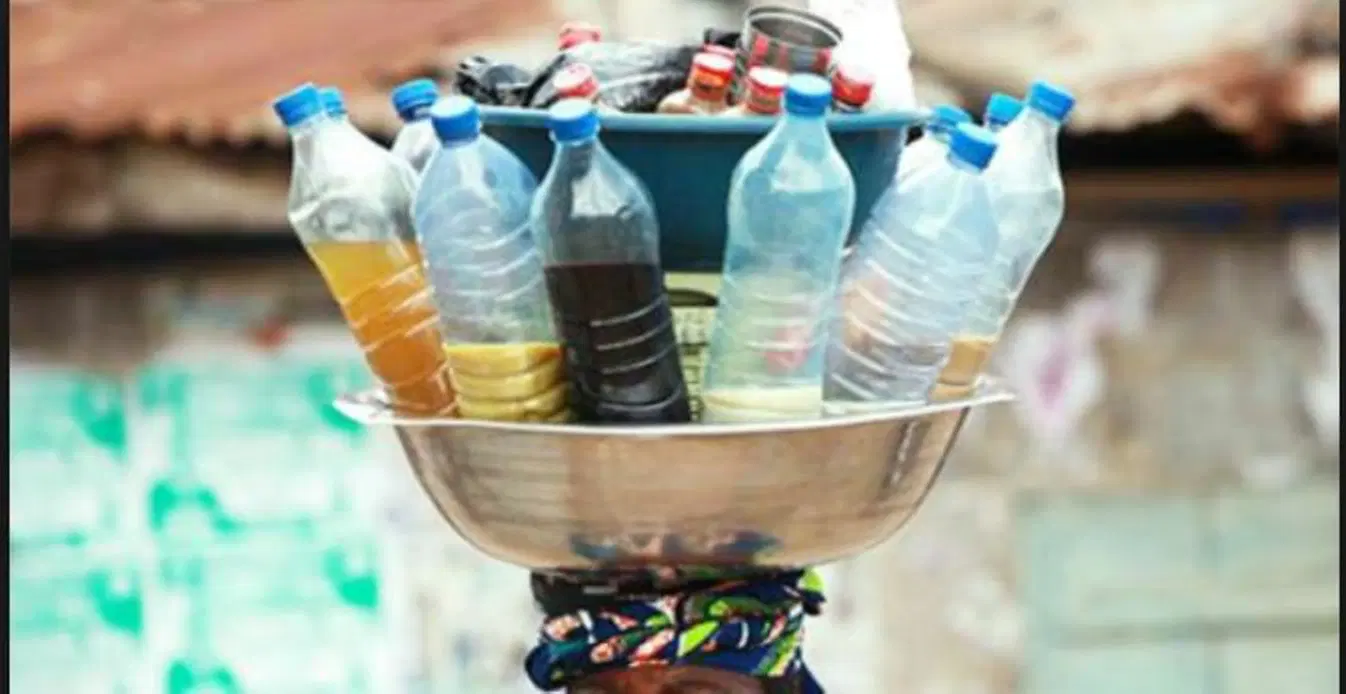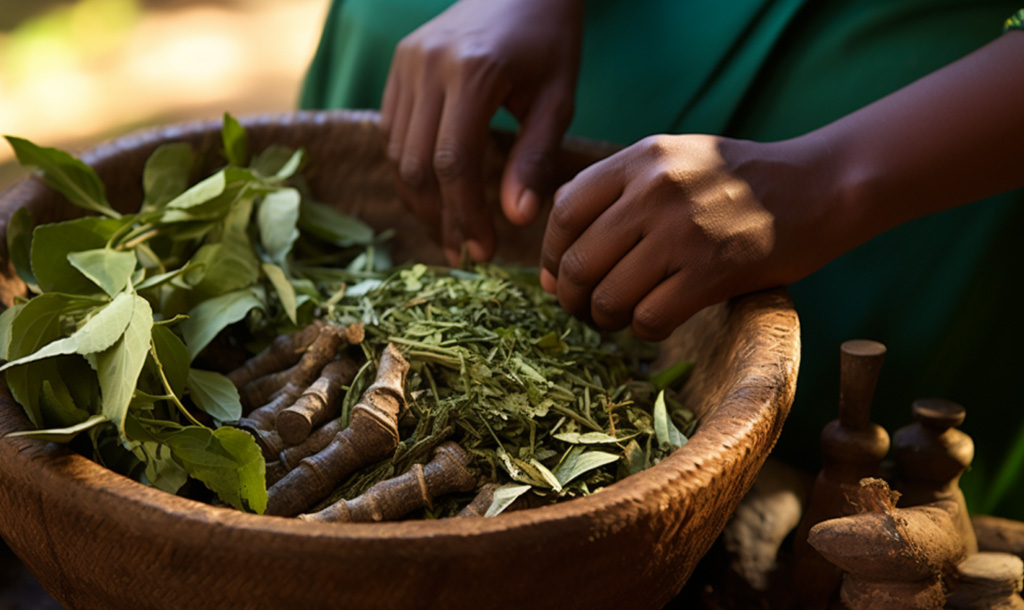From Agbo to Antibiotics: Africa’s Tug of War Between Tradition and Modern Medicine

It is an absolutely normal sight to see a woman who balances a tray of plastic bottles filled with dark, bitter liquid. She will likely call out to the queue of bus passengers, “Agbo jedi-jedi! Agbo iba!” and within minutes, commuters will hand her crumpled naira notes in exchange for plastic cups of herbal mixtures brewed overnight.
Just a few meters away, a pharmacy advertises painkillers, antibiotics, and vitamin supplements.
These two scenes exposes Africa’s enduring tug of war in the health system. There is the pull between traditional healing and modern medicine.
This is beyond the matter of health. It is the reflection of culture, history, economics, and the continent’s search for identity in a globalized medical world.

Pc: Google
Ancient Roots, Bitter Leaves
Long before hospitals, Africans entrusted their health to healers, diviners, and herbalists. Illness was never only physical; it was spiritual, social. Africans believed the spiritual controls the physical and they treated medicine that way.
The Yoruba babaláwo, the Zulu inyanga, or the Akan herbalist were as much custodians of culture as they were medical practitioners. Colonization introduced European medicine where we find quinine, injections, surgeries, but could not erase centuries of indigenous knowledge.
Agbo, for example, is more than just a bitter mixture extracted from various leaves and barks of trees. It is a culture.
Each leaf, bark, and root carries ancestral memory, whispered from one generation to the next. To drink it is to affirm that the wisdom of forebears has not lost relevance, even in an age of microscopes and antibiotics.
Hospitals, White Coats, and the Science of Healing
The spread of modern medicine in Africa came with colonial administrations, missionary hospitals, and vaccination campaigns. After independence, governments expanded public health systems as teaching hospitals rose in cities, nurses were trained, vaccines were rolled out.
Today, urban Africans are as likely to walk into a hospital as they are to visit a herbalist. Pharmacies stock everything from malaria drugs to contraceptives, and antibiotics are often the first line of defense.
Yet, the gleaming world of hospitals has not fully replaced the open-air world of herbal concoctions. The two coexist, uneasily, in everyday African life.
Why Africans Still Choose Agbo
The answer lies partly in accessibility. A hospital visit can cost a month's salary, while a bottle of agbo is cheaper and often available at your doorstep. For rural communities, herbalists may be the only health providers within reach.
There is also cultural trust. Many Africans believe that “if it cured our ancestors, it will cure us too.” Agbo is prescribed for ailments as varied as malaria, typhoid, infertility, and spiritual cleansing. In contrast, hospitals are sometimes seen as places of last resort, visited only when the herbal route has failed.
Distrust of modern healthcare also fuels the preference. Long queues, rude staff, understaffed clinics, and frequent drug shortages leave patients frustrated. In comparison, a herbalist inquires from the spirits, listens, prays, and prepares a personalized mix. Healing, here, feels human.
The Dangers in the Bottle
But tradition comes with risks. Agbo, like many herbal remedies, lacks standardized dosages. A cup too strong may damage the liver and a weak brew may do nothing at all.
Some mixtures contain harmful contaminants or are brewed in unhygienic conditions. Worse, people sometimes rely solely on herbal remedies, delaying life-saving interventions such as antibiotics or surgery.
Doctors frequently warn of patients arriving at hospitals too late, for example, in cases where organs have failed, infections has advanced, because they first trusted an untested concoction. Tradition can comfort, but it can also kill.

The Shortcomings of Modern Medicine
Yet, modern medicine in Africa is far from perfect. The continent suffers a dire doctor-to-patient ratio, sometimes one doctor for every 1,000 people.
Medicines are expensive and counterfeit drugs flood the market. For the poor, antibiotics are likely bought in halves, two tablets today, two tomorrow, never completing a prescription.
Even when hospitals function, the experience can be alienating. Cold white walls, rushed consultations, unsmiling nurses, and the absence of cultural or spiritual considerations leave many yearning for the warmth of traditional healing.
Finding the Middle Ground
The truth remains that Africa does not need to abandon either path. The World Health Organization has urged governments to integrate traditional medicine into primary healthcare.
Some countries are already moving in this direction. Nigeria’s NAFDAC registers and regulates some herbal products. Madagascar famously promoted an herbal COVID-19 remedy, sparking global debate. Researchers worldwide continue to study African plants such as Artemisinin, derived from wormwood, which became the foundation of global malaria treatment.
Imagine if agbo sellers were trained in hygiene, dosage, and record-keeping. Imagine if herbal compounds were studied in laboratories, validated, and prescribed alongside antibiotics. The tug of war could become a handshake of collaboration.
Tomorrow’s Healers
The youth, especially in cities, are skeptical yet curious. Some see agbo as backward, preferring the sleek assurance of pills and syringes. Others embrace a return to nature, rejecting “chemical” drugs. Between these extremes lies a pragmatic modern African generation who are willing to drink agbo for stomach upset, but quick to demand strong imported antibiotics for an infection.
Urbanization and globalization may slowly erode some cherished traditions, but herbal markets remain stubbornly alive and thriving today. As long as modern healthcare remains expensive and unevenly distributed, tradition will not vanish.
A Marriage of Bitter and Sweet
Back at the bus stop, the agbo seller finishes her round. A young man swallows his cup, grimaces at the bitterness, and mutters, “E go clear.” Minutes later, he pops a paracetamol from the pharmacy next door. His body is a battlefield of tradition and science, bitter leaves and antibiotics.
Africa’s health future will not be secured by rejecting either path. The real revolution will come when bitter brews are tested in labs, when hospitals respect cultural beliefs, and when science and tradition learn to work together.
Between agbo and antibiotics lies not just a tug of war but a chance for Africa to heal on its own terms.
You may also like...
If Gender Is a Social Construct, Who Built It And Why Are We Still Living Inside It?

If gender is a social construct, who built it—and why does it still shape our lives? This deep dive explores power, colo...
Be Honest: Are You Actually Funny or Just Loud? Find Your Humour Type

Are you actually funny or just loud? Discover your humour type—from sarcastic to accidental comedian—and learn how your ...
Ndidi's Besiktas Revelation: Why He Chose Turkey Over Man Utd Dreams

Super Eagles midfielder Wilfred Ndidi explained his decision to join Besiktas, citing the club's appealing project, stro...
Tom Hardy Returns! Venom Roars Back to the Big Screen in New Movie!

Two years after its last cinematic outing, Venom is set to return in an animated feature film from Sony Pictures Animati...
Marvel Shakes Up Spider-Verse with Nicolas Cage's Groundbreaking New Series!

Nicolas Cage is set to star as Ben Reilly in the upcoming live-action 'Spider-Noir' series on Prime Video, moving beyond...
Bad Bunny's 'DtMF' Dominates Hot 100 with Chart-Topping Power!

A recent 'Ask Billboard' mailbag delves into Hot 100 chart specifics, featuring Bad Bunny's "DtMF" and Ella Langley's "C...
Shakira Stuns Mexico City with Massive Free Concert Announcement!

Shakira is set to conclude her historic Mexican tour trek with a free concert at Mexico City's iconic Zócalo on March 1,...
Glen Powell Reveals His Unexpected Favorite Christopher Nolan Film

A24's dark comedy "How to Make a Killing" is hitting theaters, starring Glen Powell, Topher Grace, and Jessica Henwick. ...
